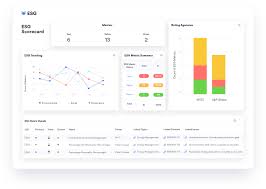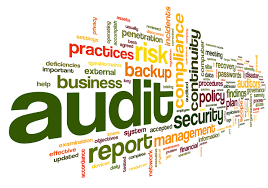The Power of Advertising
Advertising is a fundamental component of modern business and marketing strategies. It is a powerful tool that allows companies to communicate with their target audience, build brand awareness, and drive sales. In today’s competitive market landscape, effective advertising can make all the difference between success and obscurity.
Why is Advertising Important?
Advertising plays a crucial role in creating demand for products and services. By showcasing the unique features and benefits of their offerings, companies can attract potential customers and persuade them to make a purchase. Through strategic advertising campaigns, businesses can influence consumer behaviour, shape perceptions, and establish a strong brand identity.
The Different Forms of Advertising
Advertising comes in various forms, including print ads, television commercials, online banners, social media promotions, and more. Each medium offers unique advantages and reaches different audiences. The key is to select the right mix of advertising channels that align with your marketing objectives and target demographic.
The Impact of Digital Advertising
In recent years, digital advertising has revolutionised the way companies promote their products and services. With the rise of online platforms and social media networks, businesses now have unprecedented access to global audiences at a fraction of the cost compared to traditional advertising methods. Digital advertising allows for precise targeting, real-time analytics, and greater flexibility in campaign management.
Crafting an Effective Advertising Strategy
To maximise the impact of your advertising efforts, it is essential to develop a well-thought-out strategy that aligns with your overall marketing goals. Define your target audience, set clear objectives, choose the right channels, create compelling ad content, monitor performance metrics, and continuously optimise your campaigns based on feedback and data analysis.
The Future of Advertising
As consumer behaviours evolve and technology advances rapidly, the landscape of advertising continues to transform. From AI-powered targeting algorithms to immersive virtual reality experiences, the future holds endless possibilities for innovative advertising techniques. Companies that embrace change, stay ahead of trends, and engage with their audience authentically will thrive in this dynamic environment.
In conclusion, advertising remains an indispensable tool for businesses seeking growth and success in today’s fast-paced market environment. By harnessing the power of effective advertising strategies across diverse channels, companies can connect with consumers on a deeper level, build lasting relationships with their audience, and drive sustainable business growth.
Essential Insights into Advertising: Understanding Its Purpose, Principles, Types, and Role in Business
- What is the use of advertising?
- Why is the advertising?
- What are the 5 principles of advertising?
- What is advertising and why?
- What do you mean advertising?
- What is advertisement and its types?
- What is the definition of advertising?
- What is advertising in a business?
- What is known as advertising?
- What do you mean by advertising?
What is the use of advertising?
Advertising serves a multitude of purposes in the business world, making it a vital component of any marketing strategy. Its primary function is to create awareness about products or services, driving demand and influencing consumer behaviour. Through advertising, companies can differentiate themselves from competitors, build brand recognition, and establish a loyal customer base. Additionally, advertising helps businesses communicate their value proposition effectively to target audiences, ultimately leading to increased sales and revenue generation. Overall, the use of advertising is instrumental in shaping perceptions, driving engagement, and fostering long-term relationships with customers.
Why is the advertising?
The question “Why is advertising?” is a common inquiry that delves into the fundamental purpose and significance of advertising in the business world. Advertising serves as a vital communication tool that enables companies to reach their target audience, build brand recognition, and drive sales. By showcasing products or services through various channels, advertising helps businesses create awareness, influence consumer behaviour, and differentiate themselves from competitors. Ultimately, advertising plays a crucial role in connecting businesses with consumers, fostering brand loyalty, and sustaining market presence in an increasingly competitive landscape.
What are the 5 principles of advertising?
The five principles of advertising serve as guiding pillars for creating impactful and successful marketing campaigns. These principles include attention, interest, desire, action, and satisfaction. Attention aims to capture the audience’s interest through compelling visuals or messages. Interest involves piquing curiosity and engaging the viewer with relevant content. Desire focuses on creating a need or want for the product or service being advertised. Action prompts the audience to take a specific step, such as making a purchase or visiting a website. Finally, satisfaction ensures that customers are content with their decision and experience after engaging with the advertisement. By adhering to these principles, advertisers can craft persuasive and effective campaigns that resonate with their target audience.
What is advertising and why?
Advertising is a strategic communication tool used by businesses to promote their products or services to target audiences. It serves as a way to create brand awareness, influence consumer behaviour, and drive sales. Through advertising, companies can convey their unique selling points, build credibility, and differentiate themselves from competitors in the market. By reaching out to potential customers through various channels such as print, digital, or broadcast media, advertising helps businesses establish a strong presence, connect with their audience on an emotional level, and ultimately achieve their marketing objectives.
What do you mean advertising?
Advertising refers to the strategic communication of promotional messages to a target audience with the aim of promoting products, services, or brands. It is a vital component of marketing that involves creating awareness, generating interest, and influencing consumer behaviour. Through various mediums such as print, television, online platforms, and social media, advertising seeks to convey key information about offerings, differentiate them from competitors, and ultimately drive sales. Effective advertising campaigns are carefully crafted to resonate with the intended audience and achieve specific business objectives.
What is advertisement and its types?
Advertising is a strategic communication tool used by businesses to promote their products or services to a target audience. It encompasses various forms and channels through which companies convey their messages to consumers. The types of advertisements can be categorised into different mediums, including print ads, television commercials, radio spots, online banners, social media promotions, and more. Each type of advertisement offers unique advantages in reaching specific audiences and achieving marketing objectives. Understanding the different types of advertising allows businesses to tailor their campaigns effectively and engage with consumers across diverse platforms to drive brand awareness and sales.
What is the definition of advertising?
Advertising can be defined as a strategic communication process used by businesses and organisations to promote their products, services, or brand to a target audience. It involves the creation and dissemination of persuasive messages through various media channels with the aim of influencing consumer behaviour and generating sales. Effective advertising seeks to capture attention, convey key messages, evoke emotions, and ultimately drive desired actions from the audience. By leveraging creative concepts, market insights, and consumer psychology, advertising plays a vital role in building brand awareness, shaping perceptions, and fostering customer loyalty in today’s competitive marketplace.
What is advertising in a business?
Advertising in a business refers to the strategic communication and promotion of products or services to target audiences with the aim of generating awareness, interest, and ultimately driving sales. It encompasses a variety of marketing techniques and channels, such as print ads, television commercials, digital banners, social media campaigns, and more. Effective advertising in a business involves crafting compelling messages that resonate with consumers, selecting the most relevant channels to reach the target demographic, and measuring the impact of advertising efforts through key performance indicators. By investing in advertising, businesses can enhance brand visibility, differentiate themselves from competitors, and ultimately achieve their marketing objectives.
What is known as advertising?
Advertising, in the realm of marketing and business, refers to the strategic communication of messages by companies or organisations to promote their products, services, or brands to a target audience. It encompasses various forms of media such as print, television, radio, online platforms, and social media. The primary goal of advertising is to create awareness, generate interest, and ultimately persuade consumers to take a desired action, such as making a purchase or engaging with the brand. Effective advertising involves crafting compelling messages that resonate with the intended audience and strategically selecting the most suitable channels to reach them.
What do you mean by advertising?
Advertising refers to the strategic communication process used by businesses and organisations to promote their products, services, or brands to a target audience. It involves creating and disseminating persuasive messages through various channels such as print media, television, radio, online platforms, and social media. The primary goal of advertising is to raise awareness, generate interest, and ultimately drive consumer action, whether it be making a purchase, visiting a website, or engaging with a brand. By leveraging creative content and effective messaging, advertising plays a vital role in influencing consumer behaviour and shaping perceptions of products and services in the competitive marketplace.










